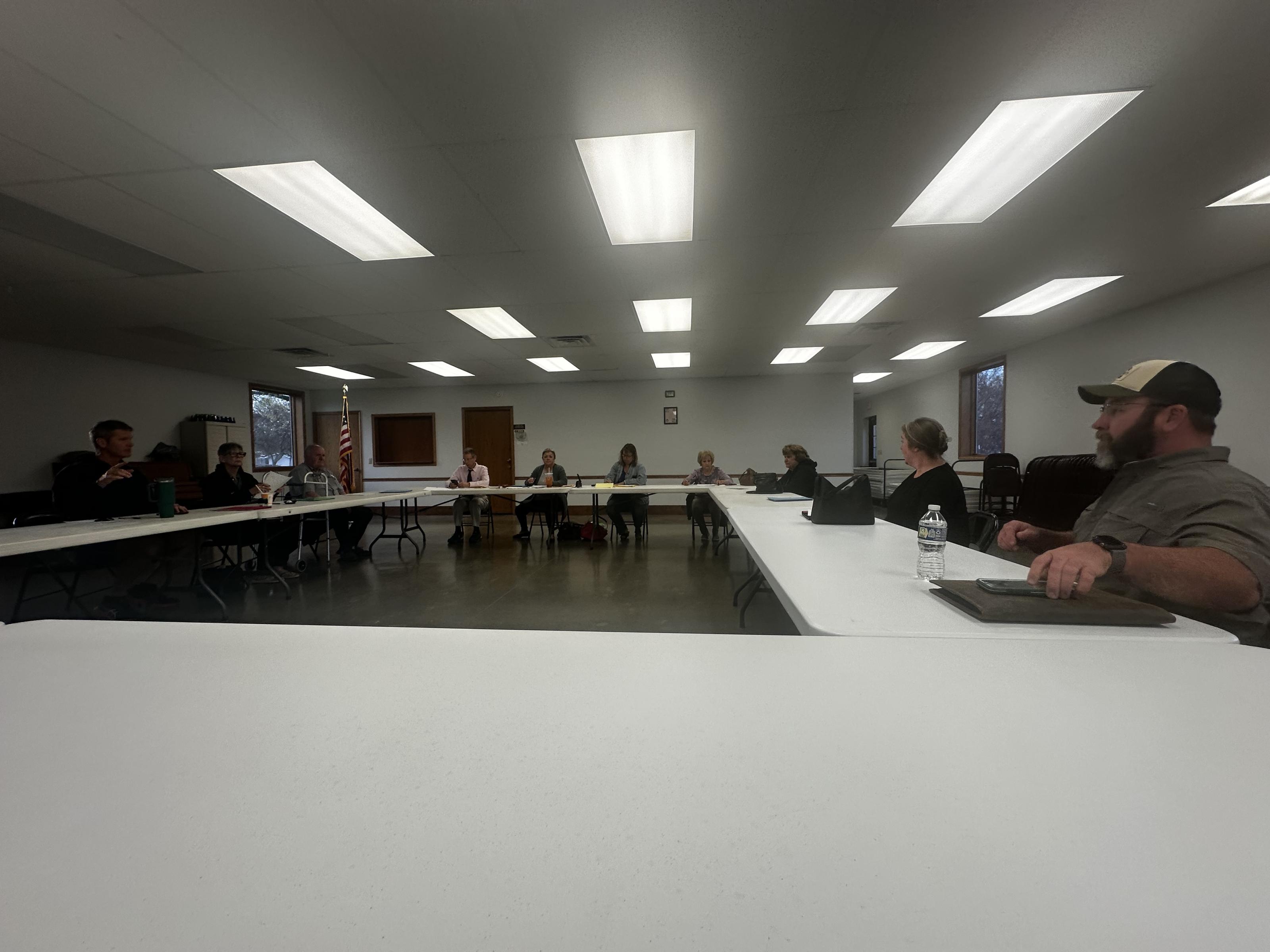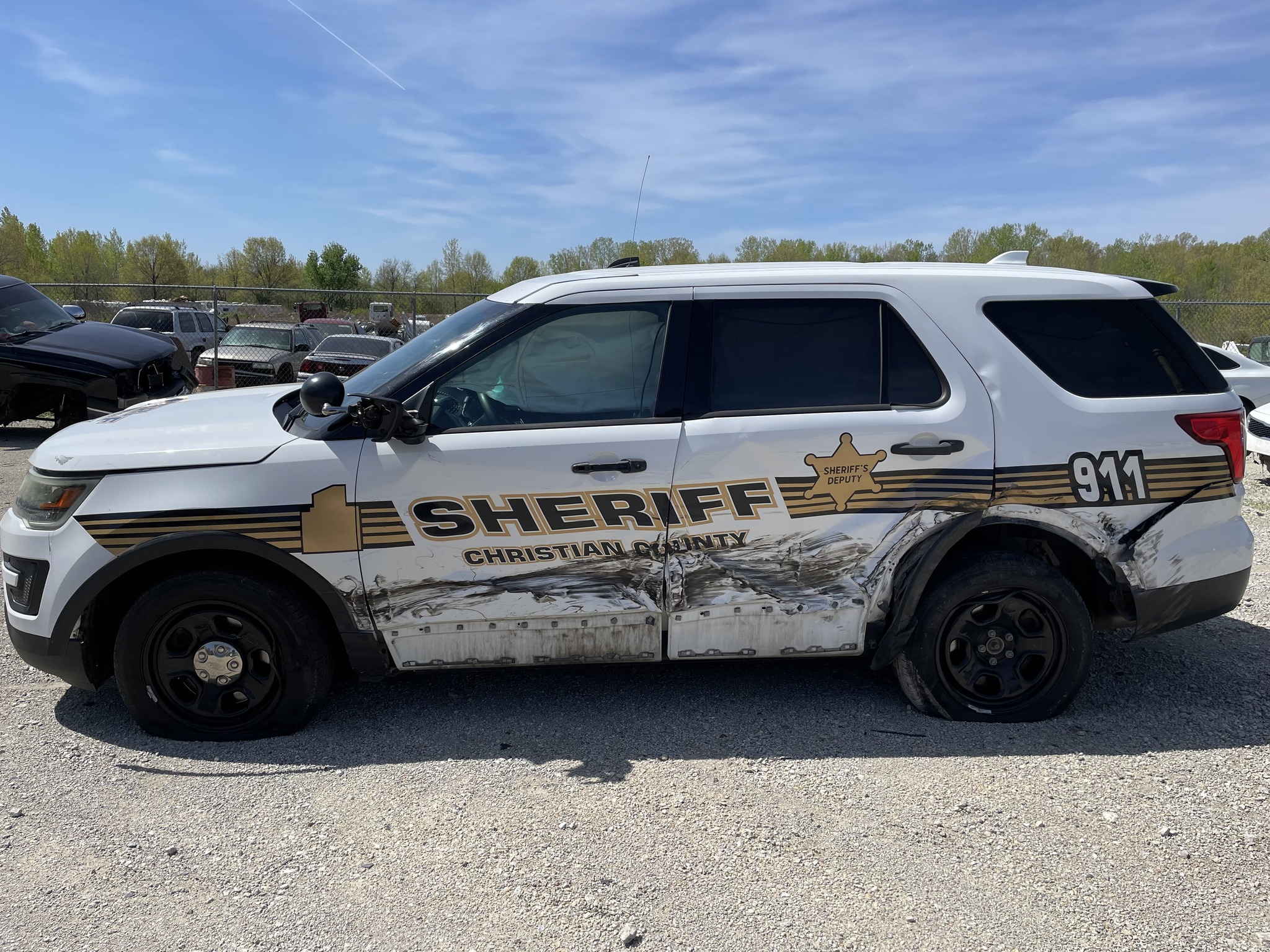NEW YORK (AP) — Standoffs between pro-Palestinian student protesters and universities grew increasingly tense on both coasts Wednesday as hundreds encamped at Columbia University faced a deadline from the administration to clear out while dozens remained barricaded inside two buildings on a Northern California college campus.
Both are part of intensifying demonstrations over Israel’s war with Hamas by university students across the country demanding that schools cut financial ties to Israel or the war in Gaza. Dozens have been arrested on charges of trespassing or disorderly conduct.
Columbia’s President Minouche Shafik in a statement Tuesday set a midnight deadline to reach an agreement with students to clear the encampment, or “we will consider alternative options.”
That deadline passed without news of an agreement. Videos show some protestors taking down their tents while others doubled down in speeches. The heightened tension arrived the night before U.S. House Speaker Mike Johnson’s trip to Columbia to visit with Jewish students and address antisemitism on college campuses.
Across the country, protestors at California State Polytechnic University, Humboldt, started using furniture, tents, chains and zip ties to block the building’s entrances Monday evening. The defiance was less expected in the conservative region of California, some 300 miles (480 kilometers) north of San Francisco.
“We are not afraid of you!” the protestors chanted before officers in riot gear pushed into them at the building’s entrance, video shows. Student Peyton McKinzie said she was walking on campus Monday when she saw police grabbing one woman by the hair, and another student having their head bandaged for an injury.
“I think a lot of students are in shock about it,” she told The Associated Press.
Three students have been arrested, according to a statement from Cal Poly Humboldt, which shutdown the campus until Wednesday. An unknown number of students had occupied a second campus building Tuesday.
The upwelling of demonstrations has left universities struggling to balance campus safety with free speech rights. Many long tolerated the protests, which largely demanded that schools condemn Israel’s assault on Gaza and divest from companies that sell weapons to Israel.
Now, universities are doling out more heavy-handed discipline, citing safety concerns as some Jewish students say criticism of Israel has veered into antisemitism.
Protests had been bubbling for months but kicked into a higher gear after more than 100 pro-Palestinian demonstrators who had camped out on Columbia’s upper Manhattan campus were arrested Thursday.
By late Monday at New York University, police said 133 protesters were taken into custody and all had been released with summonses to appear in court on disorderly conduct charges.
In Connecticut, police arrested 60 protesters — including 47 students — at Yale, after they refused to leave an encampment on a plaza at the center of campus.
Yale President Peter Salovey said protesters had declined an offer to end the demonstration and meet with trustees. After several warnings, school officials determined “the situation was no longer safe,” so police cleared the encampment and made arrests.
In the Midwest on Tuesday, a demonstration at the center of the University of Michigan campus had grown to nearly 40 tents, and nine anti-war protesters at the University of Minnesota were arrested after police took down an encampment in front of the library. Hundreds rallied to the Minnesota campus in the afternoon to demand their release.
Harvard University in Massachusetts has tried to stay a step ahead of protests by locking most gates into its famed Harvard Yard and limiting access to those with school identification. The school has also posted signs that warn against setting up tents or tables on campus without permission.
Literature Ph.D. student Christian Deleon said he understood why the Harvard administration may be trying to avoid protests but said there still has to be a place for students to express what they think.
“We should all be able to use these kinds of spaces to protest, to make our voices heard,” he said.
Ben Wizner, a lawyer with the American Civil Liberties Union, said college leaders face extremely tough decisions because they have a responsibility to ensure people can express their views, even when others find them offensive, while protecting students from threats and intimidation.
The New York Civil Liberties Union cautioned universities against being too quick to call in law enforcement in a statement Tuesday.
“Officials should not conflate criticism of Israel with antisemitism or use hate incidents as a pretext to silence political views they oppose,” said Donna Lieberman, the group’s executive director.
Leo Auerbach, a student at the University of Michigan, said the differing stances on the war hadn’t led to his feeling unsafe on campus but he has been fearful of the “hateful rhetoric and antisemitic sentiment being echoed.”
“If we’re trying to create an inclusive community on campus, there needs to be constructive dialogue between groups,” Auerbach said. “And right now, there’s no dialogue that is occurring.”
At the Massachusetts Institute of Technology, physics senior Hannah Didehbani said protesters were inspired by those at Columbia.
“Right now there are several professors on campus who are getting direct research funding from Israel’s ministry of defense,” she said. “We’ve been calling for MIT to cut those research ties.”
Protesters at the University of California, Berkeley, which had an encampment of about 30 tents Tuesday, were also inspired by Columbia’s demonstrators, “who we consider to be the heart of the student movement,” said law student Malak Afaneh.
Campus protests began after Hamas’ deadly attack on southern Israel, when militants killed about 1,200 people, most of them civilians, and took roughly 250 hostages. During the ensuing war, Israel has killed more than 34,000 Palestinians in the Gaza Strip, according to the local health ministry, which doesn’t distinguish between combatants and noncombatants but says at least two-thirds of the dead are children and women.
___
Perry reported from Meredith, New Hampshire. Associated Press writers Will Weissert in Triangle, Virginia; Larry Lage in Ann Arbor, Michigan; Steve LeBlanc in Cambridge, Massachusetts; Dave Collins in Hartford, Connecticut; Jim Salter in O’Fallon, Missouri; Haven Daley in San Francisco; Jesse Bedayn in Denver; and John Antczak in Los Angeles contributed to this report.
Brought to you by www.srnnews.com

























